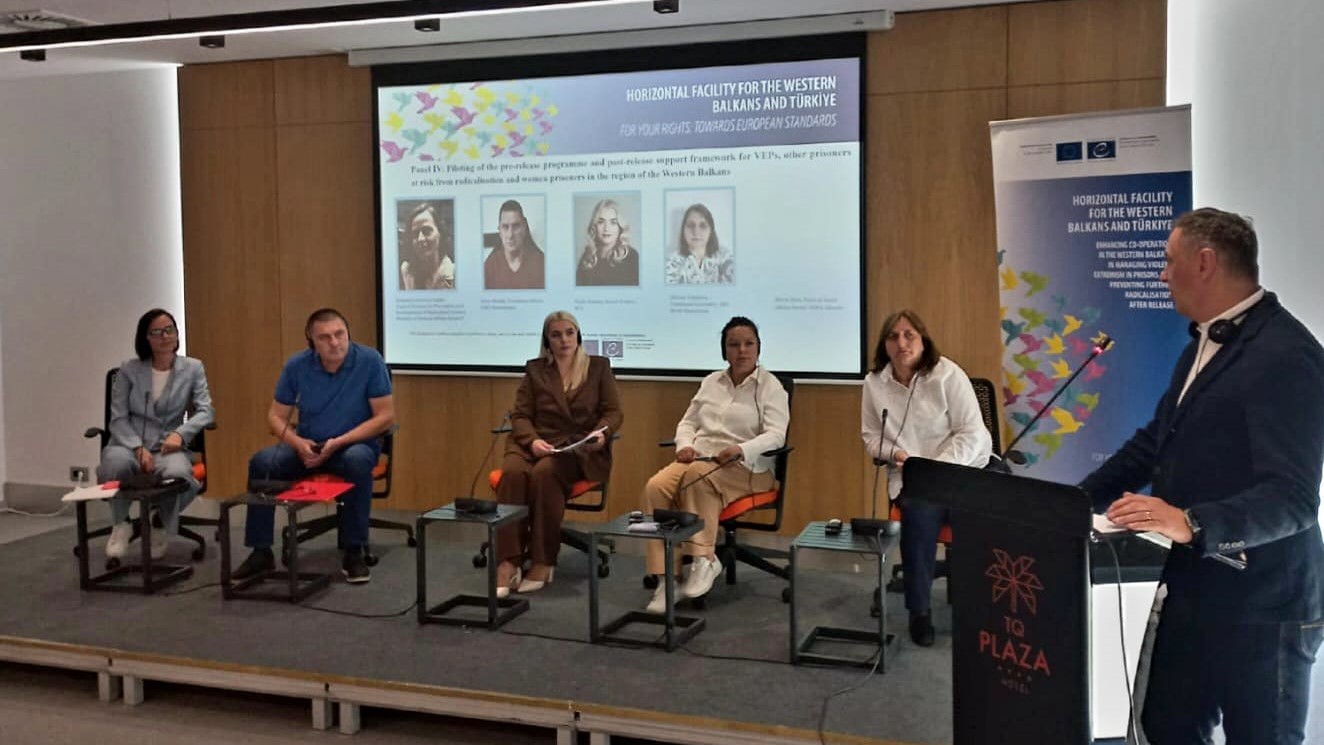Tools and programmes, specifically tailored to identify and prevent prison radicalisation and to help individuals disengage from use of violence, have proven to be highly effective in the Western Balkans. The prison staff recognises its reliability in identifying, diagnosing and assisting the process of rehabilitation of violent extremist prisoners in the Western Balkans. This was one of the key conclusions ofof the 3rd Regional conference “Feedback from the piloting of the VEP specific tools and programmes and the way forward in the Western Balkans” held in Budva, Montenegro during 3-4 June 2025.
The conference, organised with the support of the EU and Council of Europe, enabled prison and probation professionals from the Western Balkans Beneficiaries, to exchange experiences and discuss regional best practices related to the piloting of VEP-specific tools and application of rehabilitation and pre-release approaches, which encompassed more than 700 prisoners.
The piloting of VEP tools was conducted by more than 60 professionals, between mid-August 2024 and March 2025, showcased strengths but also revealed vulnerabilities of penitentiary systems in the process of managing and rehabilitating radicalised and violent extremist prisoners, as well as other prisoners at risk of radicalisation. This includes the limitations and possibilities of the existing post-penal support systems for this group of prisoners.
The participants concurred on the value of key instruments and rehabilitation approaches, highlighting the need to ensure their integration in domestic legislative frameworks that would mandate its use in practice. In addition, they recognised the necessity for continuous staff training, a necessity for its sustainable implementation and advocated for the development of specific monitoring and evaluation that would empirically track the impact of these tools and methods allowing for their optimisation towards end users.
During the conference, participants had the opportunity to watch the documentary produced by BIRN Bosnia Herzegovina titled "Bosnia Nervously Awaits ISIS Women and Children Return" about how authorities are making preparations to reintegrate Bosnian supporters of Islamic State when they return home.
The regional conference was organised by the regional action “Enhancing co-operation in the Western Balkans in managing violent extremism in prisons and preventing further radicalisation after release” through the joint support of the EU and Council of Europe, under the auspices of the third phase of the Horizontal Facility programme.


